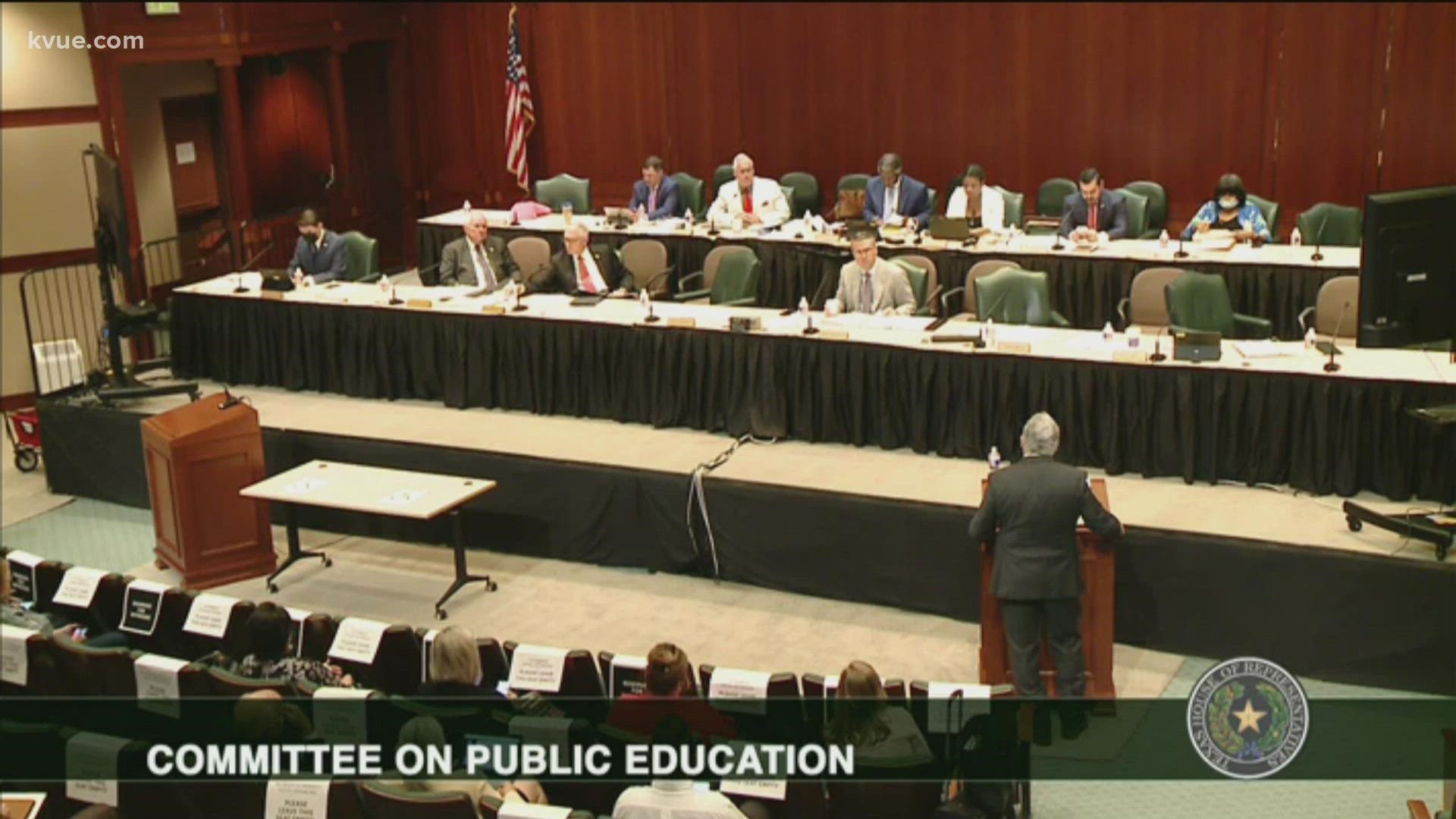AUSTIN, Texas — Senate Bill 15 passed through the House Committee on Public Education on Tuesday, advancing legislation to fully fund virtual learning options at Texas public schools that meet certain requirements in student achievement. The bill caps the number of virtual students to 10% of the district's population, but the commission of the Texas Education Agency can waive the limit to allow more students to participate on a district-by-district basis.
SB15 will now be sent to the House Calendars Committee which will schedule the legislation for a vote in the full House. There are only two weeks left in the 87th Texas Legislature's second special session and the House is recessed until Thursday.
Currently, some schools districts across the state are not offering virtual or online learning options because leaders of the Texas Education Agency say they do not have the legal authority to fund those programs.
This comes as COVID-19 cases are surging across the state, with the delta variant and slow rate of vaccinations causing a spike in cases. Most Texas schools are already in session or start their first day in class this week.
The Texas Commissioner of Education testified in front of the committee, pointing out some research and test results showing a significant drop in academic outcomes for a large number of students in virtual learning last year. However, Mike Morath said some students still respond better to virtual learning and more funding this year could help schools out.
"Remote instruction clearly does work for some students," said Morath. "Virtual's not going away and school's need to get paid for providing virtual."
When asked by members of the committee, Morath said SB 15 would improve the quality of current virtual learning offerings by providing better financial resources for virtual programs.
The majority of witnesses, many of them education professionals, supported SB 15. Dallas ISD Superintendent Michael Hinojosa testified in front of the committee, but specified two parts of the bill he is against. Hinojosa opposes requirements for contract language concerning virtual learning and the "sunset provision," which sets the date for a reassessment of this bill and virtual learning for 2023.
The contract language requirements mean teachers must have it in their contract that they must do virtual learning. Hinojosa said this limits school's flexibility and options when it comes to virtual learning and disaster response.
"I implore you to trust your local boards and your local superintendents," said Hinojosa.
Chole Stegner, a high school senior student who has learned online for several years, also testified in support of virtual learning. Stegner said virtual classrooms are not just useful during a pandemic; they can also provide safer, more supportive options for disabled students or students facing bullying in school.
"A healthy and safe classroom should be the most basic guarantee by the state for every student," said Stegner.
At the end of the regular session, the Senate passed similar legislation that would have fully funded virtual options this school year. However, a final vote never happened. Democrats broke quorum to halt a vote on a sweeping elections restriction bill.
PEOPLE ARE ALSO READING:

